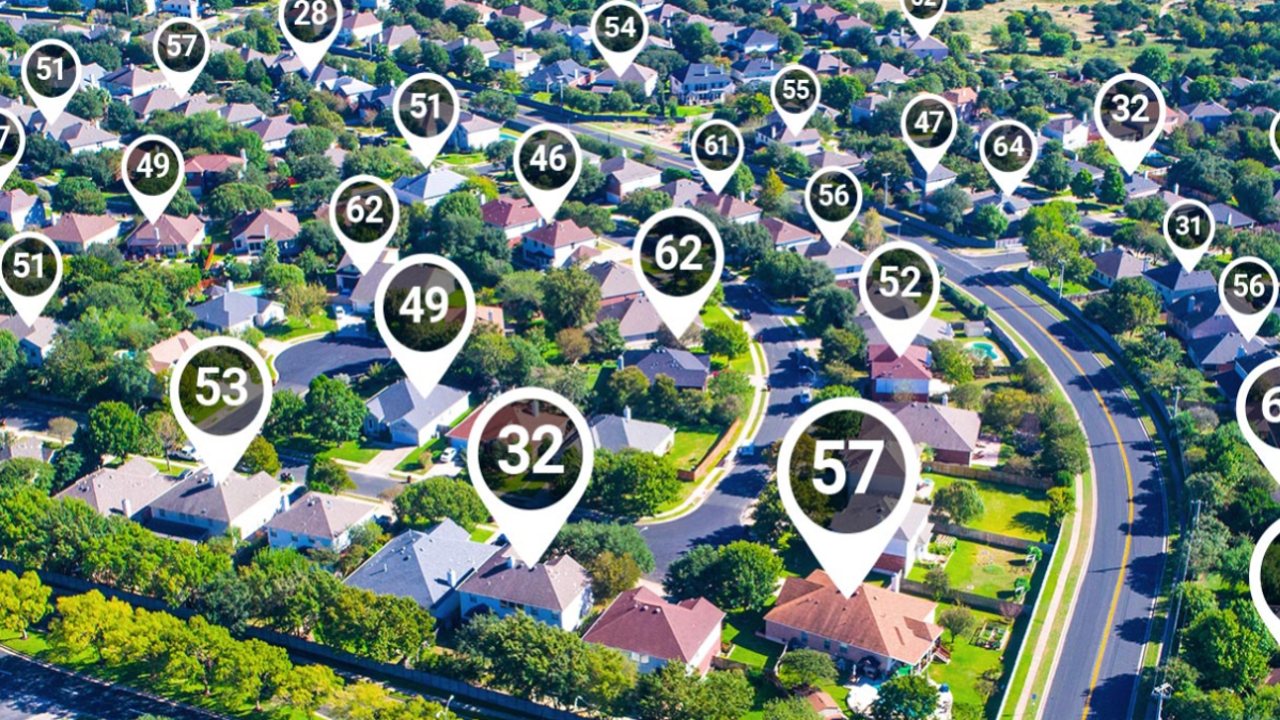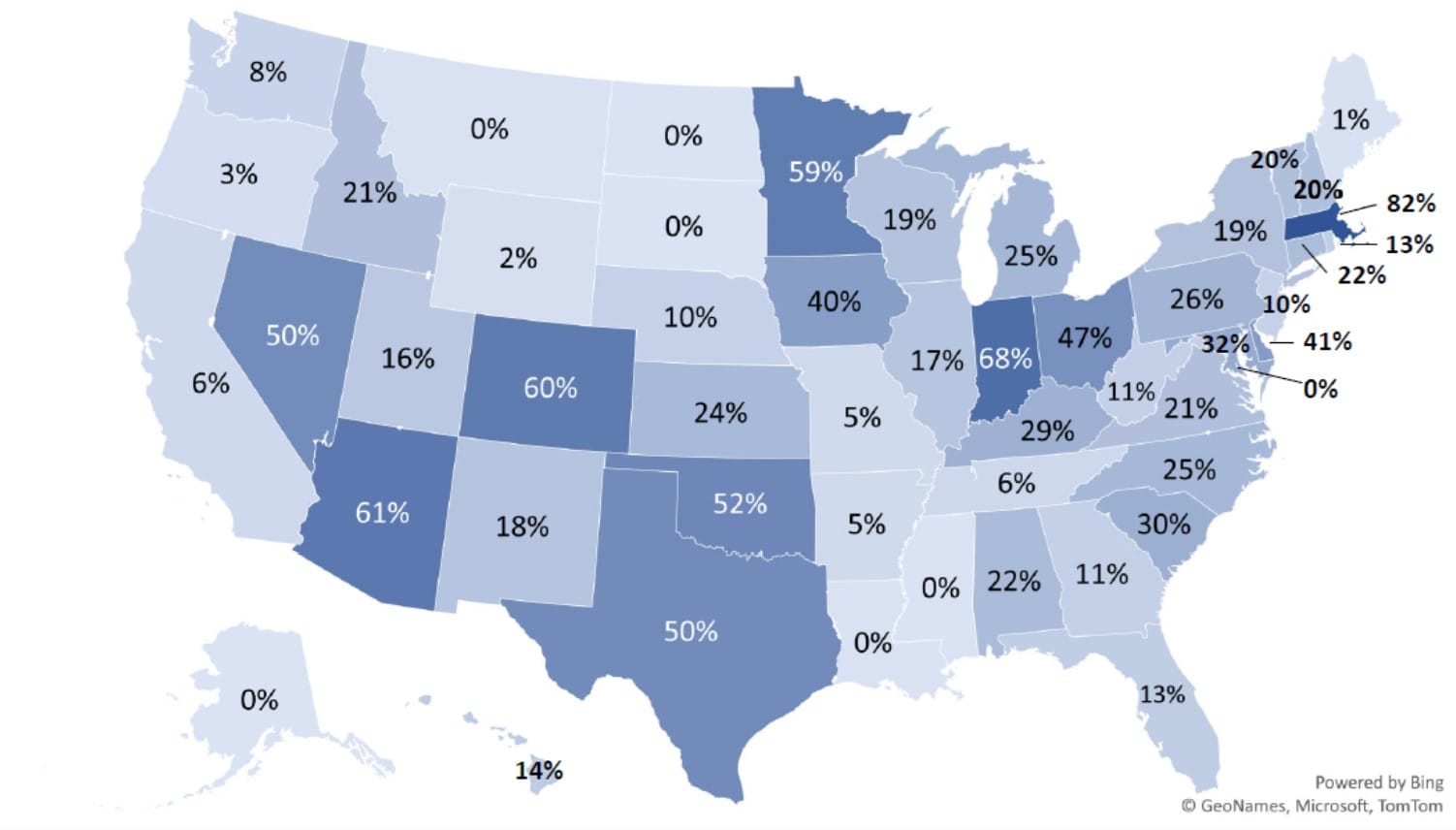Policy
How To Maximize Incentives And Value For Energy-Efficient New Homes
Engaging with energy efficiency experts can help unlock myriad benefits for new-home builders.

It’s no secret that consumer awareness of building performance and indoor air quality has increased significantly in recent years, and many homebuilders across the country have answered the call.
One way of assessing energy efficiency in homes is the Home Energy Rating System (HERS). There has been a 126% increase in the number of HERS-rated homes since 2013, when the Residential Energy Services Network (RESNET) began tracking them as part of its National Buildings Registry.
The HERS Index score provides a number, typically between zero and 100, where a lower score means less energy use. In 2022, 27% of all single-family homes built in the U.S. received a HERS Index Score. Massachusetts was the leading state, with 82% of its new homes being HERS-rated. A record-breaking eight states had 50% or more of their new homes rated.

Why Should Builders Care?
In addition to the increase in consumer awareness, tax credits, investor pressure, more stringent energy codes, and market-driven incentives have pushed builders in recent years to improve the energy efficiency of the homes they construct. Here’s a summary of some of the key drivers that can impact and benefit builders:
- 45L Energy Efficient New Home Federal Tax Credit: The Inflation Reduction Act included an extension of the 45L tax credit through 2032 and an increase in the amount of the credit. Homes eligible for the tax credit must be certified to the applicable version of the Energy Star for Residential New Homes Program or the U.S. Department of Energy’s Zero Energy Ready Home Program. Homes certified to Energy Star can receive up to $2,500 per home and homes certified to the Zero Energy Ready Home program can receive up to $5,000 per home. RESNET is already seeing a 25% increase in Energy Star homes for 2023.
- Fannie Mae and Freddie Mac Green Mortgage-Backed Securities: These two secondary mortgage market giants both have green mortgage-backed securities programs. The Fannie Mae program requires Energy Star certification, and the Freddie Mac program requires a HERS Index score of 60 or less. Mortgage companies can sell mortgages for homes meeting these requirements for a premium. These programs are of particular interest to builders that have mortgage subsidiaries or joint ventures with mortgage companies.
- ESG and Sustainability Reporting: Over the past several years, investors have increased the requirements for their investments to demonstrate environmental, social and governance stewardship. Builders have been turning to the HERS Index data on their homes to demonstrate environmental stewardship. This data can provide them with energy and carbon savings, energy performance, energy efficiency program certification and the use of renewable energy. Builders that use programs like HERS H2O and WaterSense can also demonstrate the water efficiency benefits of their homes.
- Local Utility Program Incentives: Many electric and gas utilities offer incentives for HERS rated homes or the installation of high-efficiency heating, cooling, or water heating equipment. Builders often rely on certified RESNET HERS Raters to verify compliance with these programs and receive financial incentives. These incentives can be stacked with other programs like the 45L tax credit and the Fannie Mae and Freddie Mac green mortgage-backed securities programs to minimize added costs for building more energy-efficient homes.
- Energy Code Compliance Flexibility: The residential requirements in the International Energy Conservation Code (IECC) have increased about 35% in efficiency since 2006. The IECC is the national model energy code, which is adopted by most states and local jurisdictions. As prescriptive requirements in the code continue to increase, builders are turning to performance-based compliance options — which often require software and certified professionals like HERS raters — to gain flexibility in meeting the code requirements most cost-effectively.
One performance-based compliance option—the Energy Rating Index (ERI)—has been in the IECC since the 2015 version. Fifteen states have adopted a code that includes the ERI. More recently, the Texas legislature adopted HB 3215, which allows the HERS Index to be used across the state and lays out target scores through 2028. The Texas law allows the HERS Index as a standalone compliance path instead of the state energy code and any local stretch codes. Massachusetts allows the HERS Index or ERI for energy code compliance; and in municipalities that have joined the commonwealth’s Green Communities Program, a HERS rating is mandatory for new residential construction.
A recent RESNET survey of HERS raters and rating field inspectors showed that more than 90% were involved with energy code compliance verification. Most builders must work with a HERS rater to test duct and envelope leakage. Engaging the same HERS rater for performance-based code compliance options often leads to savings in the construction process. It makes it easier to add a HERS rating or Energy Star certification, which enables access to the incentives discussed in this article. - Energy-Efficient Home Promotion and Performance Tracking: Good old-fashioned competition has also led many builders to turn to HERS ratings because the score offers a third-party verification of construction practices and energy performance. Builders use their HERS Index scores and other data, such as estimated energy cost savings, to market the value of their energy-efficient homes to prospective buyers. This data will become even more critical as the younger generations of homebuyers come to expect energy-efficient homes.
A 2019 study by Freddie Mac determined that HERS Rated homes, on average, sold for 2.7% more than comparable unrated homes. The study also found that homes with lower scores (i.e., more efficient) sold for 3% to 5% more than homes with higher scores.
Builders doing HERS ratings are also using the scores to set performance goals. Analyzing their historic HERS Index scores allows them to set future goals and track their progress toward achieving them. This is important for determining eligibility for incentive programs and knowing how their homes stack up against upcoming energy code adoption in the states where they build.
The Bottom Line
Homebuilders continue to be concerned about the increase of energy efficiency requirements, like those in state and local energy codes, impacting their bottom line. By engaging seasoned energy efficiency professionals in their projects, builders can not only meet energy code requirements more cost-effectively, but also open the door for incentives to minimize the impact of cost increases.
MORE IN Policy
The 50-Year Mortgage And The Real Work Hiding Behind Its Idea
President Trump and Bill Pulte’s 50-year mortgage idea may not be a solution—but it should be looked at as a spark. What matters most is the local work it could ignite on affordability, access, and upward mobility.
Homebuilders Urged To Invest In Frontline Jobsite Workers Now
As homebuilding slows, workforce investment becomes the make-or-break factor for long-term capacity. Building Talent Foundation CEO Branka Minic warns that cutting training and career-path spending now will deepen the industry’s structural labor crisis for years to come.
NYC Voters Back Affordability — Now Comes The Hard Part
New Yorkers have voted for change. Four sweeping housing charter amendments promise faster reviews, digital mapping, and more affordability—but the real battle begins as City Hall, the Council, and Albany clash over control.
